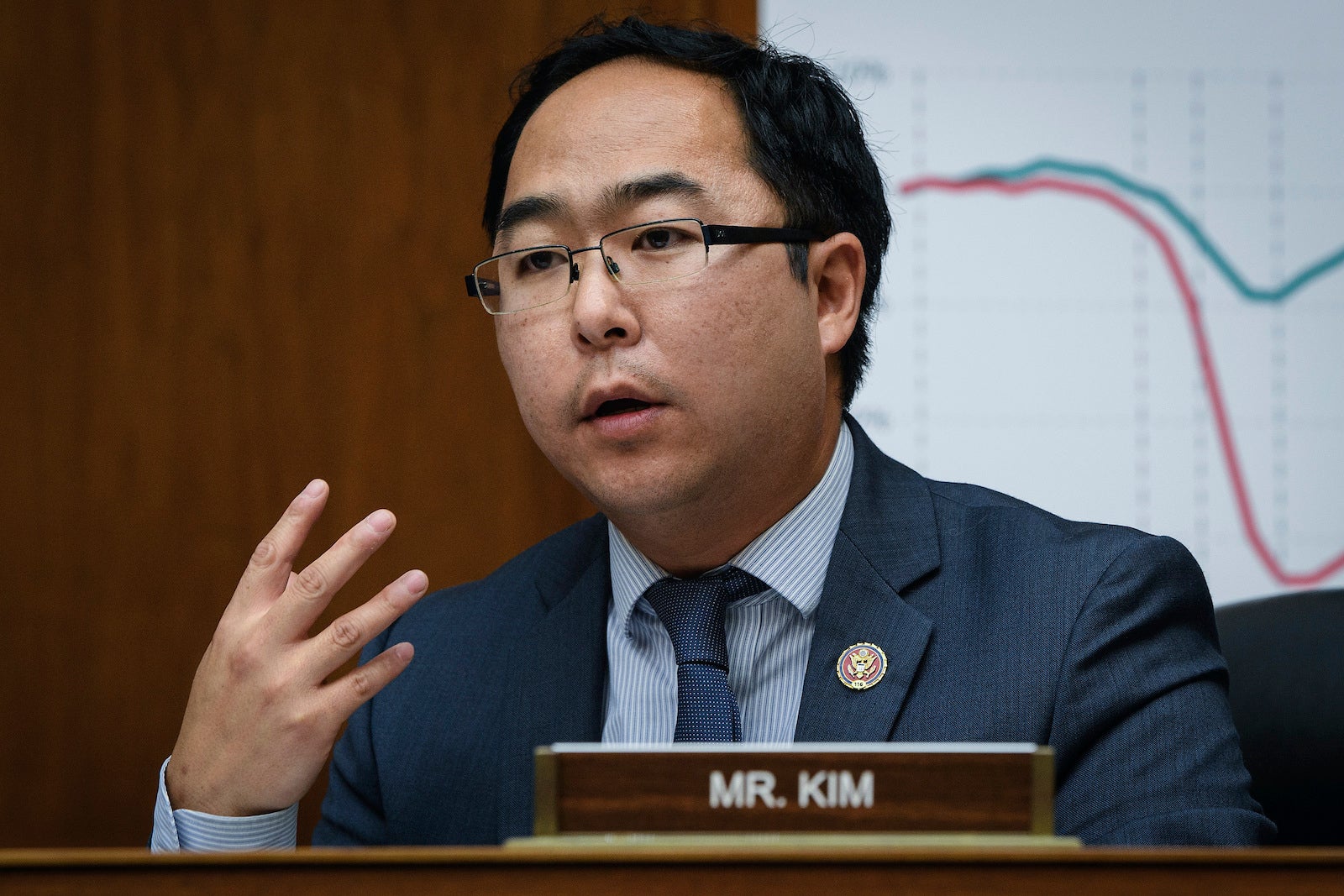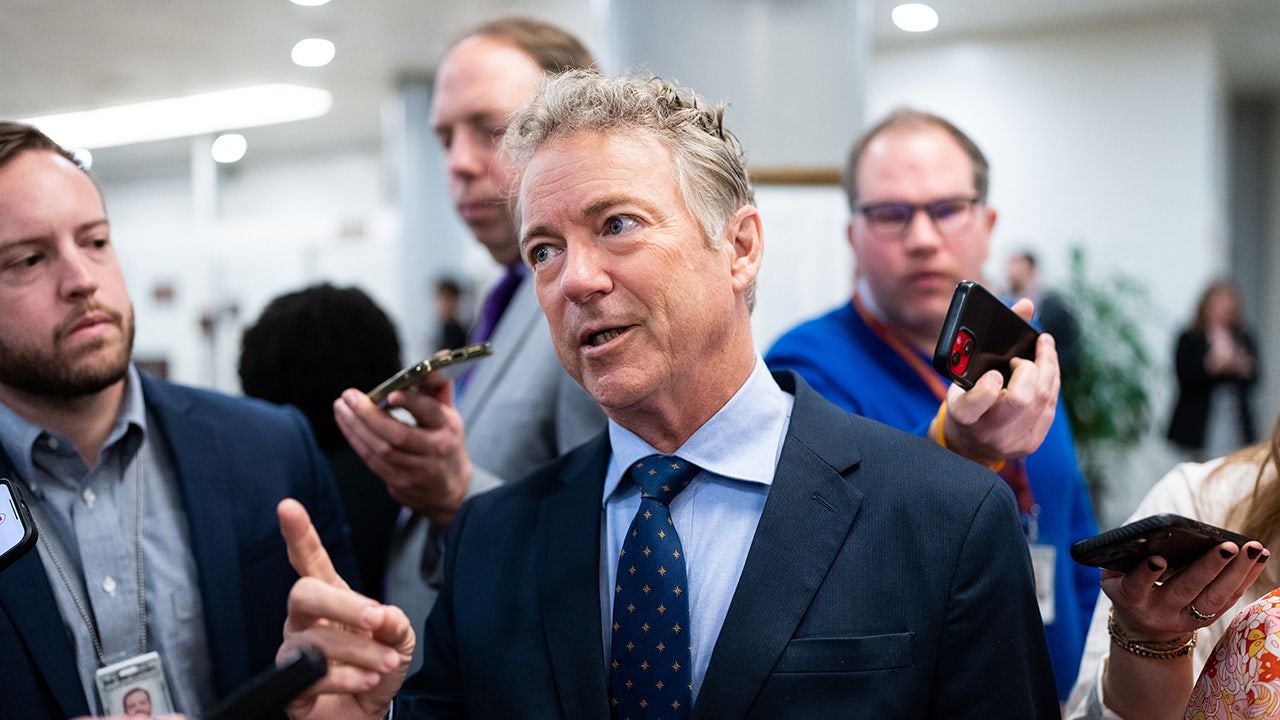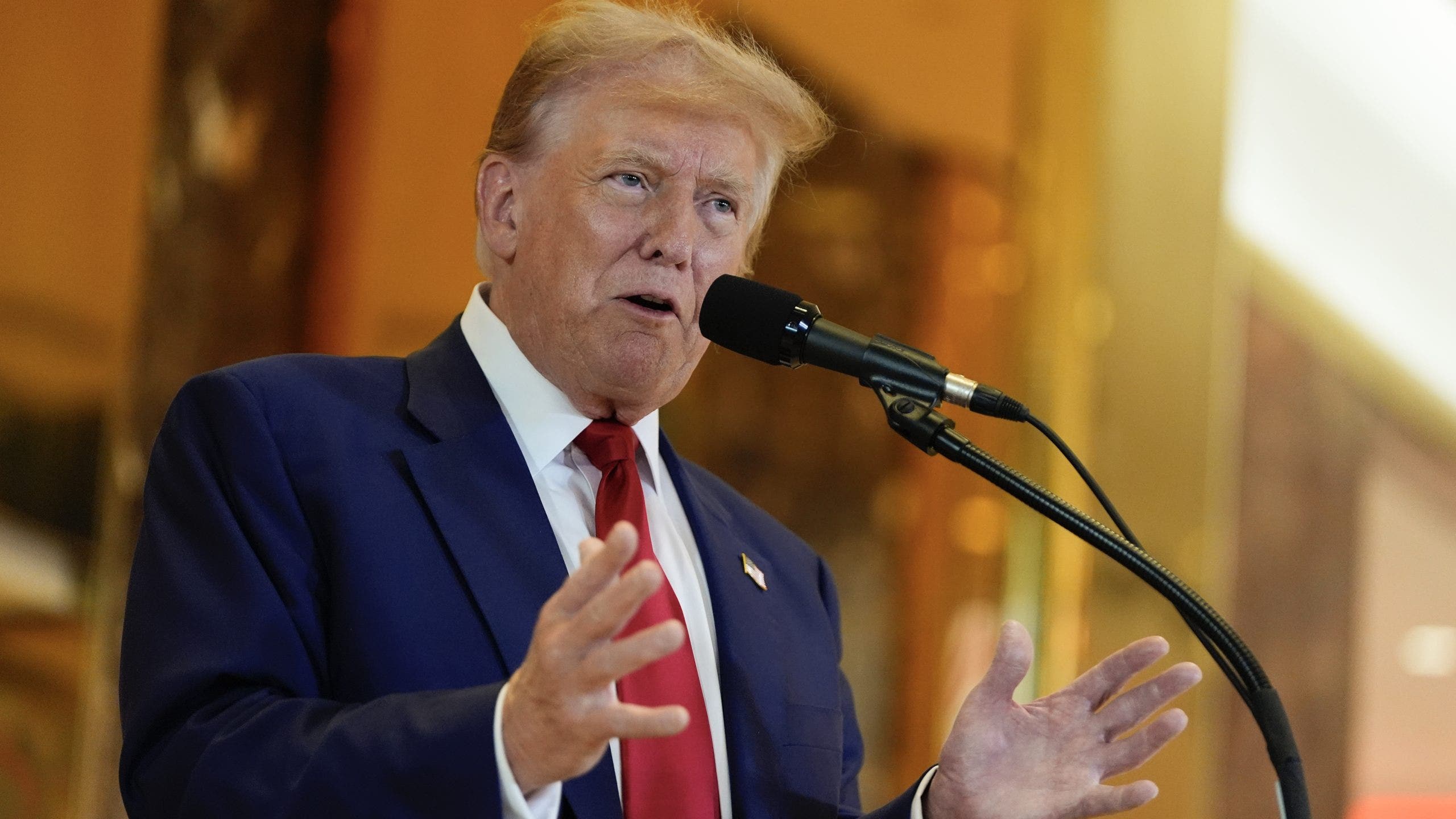New Jersey
New York Knicks, Rangers, Islanders, Brooklyn Nets And New Jersey Devils Provide Differing Playoff Appearances

New York Knicks guard Jalen Brunson (11) calls out to teammates as he is guarded by Miami Heat … [+]
A month ago, five New York area teams began their playoff journeys and it brought back memories of 1994.
Not because of any of these teams were all-time great teams for their respective franchise like the Rangers and Knicks, who played deep into June 1994.
It was because five New York playoff teams had not made the playoffs in the same season since 1994. Back then the Rangers and maybe the Knicks were expected to go the distance and win a title, this year title expectations were not as big though some pegged the Rangers as possible Stanley Cup champions.
Nearly a month later, the five-team extravaganza of each team making the playoffs officially ended. The end occurred in Miami with the Knicks dropping a 96-92 loss in Game 6 ending a second-round series that brought back memories of the four times these teams played in the postseason when they combined for 24 physical, low-scoring games in the final four seasons of Patrick Ewing’s tenure in between 1997 and 2000.
While Miami has soared well beyond those memorable battles with three championships and seven Eastern Conference appearances, the end of Friday night capped a memorable 47-win season for the Knicks, who got their superstar in Jalen Brunson, whose 41 points nearly willed them to a Game 7.
Ultimately the Knicks’ demise came down to losing Game 1 at home along with their first two losses in Miami when the Heat seemingly played as if they wanted it more, an observation noted by Julius Randle, who played through ankle pain and then opened a continued round of discourse about his future in some circles.
The ending to the Knicks’ most successful season since 2012-13 occurred about 24 hours after the Devils saw their pleasantly surprising season halted with an overtime loss in Game 5 to the Carolina Hurricanes. The loss ended a season where Jack Hughes emerged as superstar resulting in the Devils using their speed to produce their first playoff run since 2018 while scoring often and playing way differently than the three teams to win Stanley Cups and the 1994 team who nearly prevented the Rangers from ending their 54-year drought.
New Jersey Devils’ Jack Hughes (86) controls the puck in front of Carolina Hurricanes’ Jesperi … [+]
Before getting tripped up by the Hurricanes, the Devils beat the Rangers in a weird seven-game opening game series. It was the sixth time there was a “Battle of the Hudson” but this was a series that did not produce any classic games and will not lead to books being published years later.
Instead the Rangers looked like an accurate pick as a championship team when they opened the series with consecutive 5-1 victories. Then Dougie Hamilton scored in overtime, the Devils won the next two setting up the possibility of a classic series ending except the Rangers extended it with a 5-2 win before falling flat in a dud of Game 7.
New York Rangers center Mika Zibanejad (93) skates with the puck against the New Jersey Devils … [+]
The impact of getting dominate in a seventh game resulted in change behind the bench. Rumblings of the possibility about Gerard Gallant becoming a former coach started emerging soon after the teams shook hands and the possibility increased when he expressed disappointment about answering questions on the topic on breakup day. Around the same time, the Heat were in the second half and on their way to routing the Knicks, Gallant was fired in the form of a mutual separation.
The unceremonious exit capped a season where the Rangers were unable to meet the lofty expectations after a surprise run to the Eastern Conference finals ended in Tampa Bay on June 10 that was preceded by winning a pair of seventh games.
The Rangers met their end three days after the Islanders, whom in 1994 were pummeled in a four-game sweep to the eventual champions. This time the Islanders were not routed just could not get enough offense to work out, creating a thin margin of error as evidenced by three one-goal losses to the Hurricanes, who also swept them in 2019.
New York Islanders goaltender Ilya Sorokin (30) stops a shot during the first period of Game 6 of … [+]
The Islanders saw the end on April 28 on an overtime goal by Paul Stastny six minutes in. It was a bad angle goal that occurred shortly after the Mets saw a 4-0 loss to the Braves shortened to five innings because of heavy rains and the 88-minute delay.
The longtime rivals lasted further than the Nets, who seemed like they could be an Eastern Conference finalist four months ago. Back then they won 12 straight, 18 of 20 and 29 of their first 42 with some of their best stretches with Kevin Durant and Kyrie Irving on the roster.
A month later, the Nets were forced to pivot due to trade requests and retooled the roster by adding Mikal Bridges, Spencer Dinwiddie, Cam Johnson and Dorian Finney-Smith in trades for the superstar duo. The retooling sent the Nets spiraling in the standings, but it got them a date with the 76ers where the first-round series was a matter of it they would get a game or two against them.
By April 22, the answer was none as the lack of offense resulted in the Nets’ demise and third opening round sweep in four seasons.
Brooklyn Nets’ Mikal Bridges (1) defends Philadelphia 76ers’ James Harden (1) during the second half … [+]
It was the first of five elimination days for a playoff spring that produced a combined 40 games. It was not as memorable as the combined 76 games the five teams played for two months in 1994 but was certainly eventful and did enough to captivate a region who last saw a title in the four major sports by the New York Giants in the 2012 Super Bowl.

New Jersey
8 N.J. towns among top 150 with most expensive homes nationwide. See full list.

Eight New Jersey towns now rank in the top 150 for most expensive home values in the nation, according to the latest data for April from Zillow.
All of the New Jersey towns on the list had typical home values of more than $2 million.
Deal, a Jersey Shore borough near Asbury Park, ranked 25 in the nation with a typical home value of $3.66 million as of April.
New Jersey
Nurses at three New Jersey hospitals poised to strike over staffing ratios
About 3,000 nurses at three hospitals in New Jersey could soon begin a strike for safe staffing. Contracts expired Friday for 1,500 nurses at Cooper University Health Care in Camden, 800 nurses at Englewood Health in Englewood and 750 nurses at Palisades Medical Center (part of Hackensack Meridian Health) in North Bergen. As of this writing, Health Professionals and Allied Employees (HPAE), the union to which the nurses belong, has not given the hospitals 10 days’ notice that a strike will begin.
The nurses’ main demand is that safe nurse-to-patient ratios be included in their new contracts. More than 90 percent of the nurses at each hospital voted to authorize the strike, which signifies the magnitude of the problem and the workers’ determination to fight.
The developments in New Jersey continue a series of near-unanimous strike votes among US healthcare workers. Inadequate staffing, a long-standing problem that has only been exacerbated by the COVID-19 pandemic, has been the main factor motivating workers’ struggles. Understaffing increases nurses’ workloads, heightens the risk of medical errors, reduces the quality of patient care and contributes to overwork and burnout.
Recent years have seen a wave of early retirements among nurses, as well as an increase in nurses leaving the profession entirely. In New Jersey, nearly one-third of nurses have left bedside care in the past several years, according to HPAE. At least seven of 10 currently employed nurses are considering retirement. Only about half of New Jersey’s 147,000 licensed nurses are working, according to the union.
The contracts at Cooper University Health Care, Englewood Health and Palisades Medical Center are the first healthcare worker contracts to expire in New Jersey since last year’s strike at Robert Wood Johnson University Hospital (RWJUH) in New Brunswick. Debbie White, president of HPAE, said at a recent news conference that the agreement with RWJUH would serve as a model during the current negotiations. This statement is a clear warning that HPAE plans to betray the 3,000 nurses who are poised to strike.
For more than four months, the RWJUH nurses fought bravely for safe staffing and enforceable nurse-to-patient ratios. Finally, the United Steelworkers (USW) presented them with an agreement that established ratios but allowed the hospital to maintain understaffing of 18.5 percent without being penalized. It placed the onus on the already overburdened nurses to fill out safe staffing forms when understaffing exceeded the allowed level. If these criteria were met, then the contract provided for nurses to receive only two or three hours’ additional pay, even if the understaffed shift was 12 or 16 hours long. Under increasing financial pressure, and believing that the USW would not negotiate better terms, the RWJUH nurses ratified the inadequate agreement. “This was not the contract that we wanted,” one of them told the World Socialist Web Site.
Imposing a similar defeat on the 3,000 nurses who are ready to strike would be consistent with HPAE’s record of betrayals. In 2020, White prevented a strike of about 1,200 workers at Jersey Shore University Medical Center (JSUMC) in Neptune. The union also kept these workers divided from those at Southern Ocean Medical Center in Manahawkin, who were also without a contract. Both facilities are owned by Hackensack Meridian Health. HPAE’s opposition to a united fight enabled the company to impose its demands at nurses’ expense. One result is that in 2022, most nurses at JSUMC reported that they wouldn’t feel safe being treated at their workplace.
Instead of waging united struggles, HPAE encourages its members to appeal to Democratic politicians. Like the USW, HPAE is advocating for state legislation that would mandate staffing ratios. It has held rallies in Trenton, New Jersey’s capital, to demand passage of this reform. But such legislation has been introduced in New Jersey’s Senate each year for the past 20 years, only to die in committee. In California, Oregon and Massachusetts, where safe staffing laws have been passed, healthcare systems flout them with impunity.
HPAE knows very well that nurses’ pleas will fall on deaf ears. But because of its intimate relationship with the Democratic Party, it encourages illusions that the latter will respond to workers’ needs. The Democrats’ priority is not providing workplace reforms, but continuing the genocide that Israel is committing in Gaza and the proxy war with Russia that is being fought in Ukraine. As the world’s oldest capitalist party and a trusted agent of Wall Street, the Democratic Party is a party of imperialist war, which is paid for by attacks on the working class at home.
The HPAE’s affiliation with the Federation of Nurses and Health Professionals, which is the healthcare division of the American Federation of Teachers (AFT), makes its integration into the Democratic Party unmistakable. Like President Joe Biden and other Democrats, AFT President Randi Weingarten has smeared students protesting the genocide as antisemitic. But Weingarten had no qualms about traveling to Ukraine in 2022 and shaking hands with genuine antisemites such as Andriy Sadovyi, the mayor of Lviv and an open admirer of Stepan Bandera, who collaborated with the Nazis during World War II. The Democrats rely heavily on Weingarten to suppress opposition within the working class and promote nationalism and war.
White’s recent comments and the history of the HPAE make clear that the union is preparing to betray the 3,000 nurses at Cooper University Health Care, Englewood Health and Palisades Medical Center. They also reveal that these nurses face not only a workplace struggle, but also, and more fundamentally, a political struggle. To wage a determined and effective fight for safe staffing, the nurses will need to establish their political and organizational independence. This will require them to organize rank-and-file committees that they, not the HPAE leadership, control democratically. These committees must also be independent of both capitalist parties.
Rank-and-file committees will enable the nurses to elaborate a winning strategy to fight for their demands. The nurses’ power will be strengthened if they appeal to other healthcare workers, and workers in other industries, for support. A strike at the three New Jersey hospitals must become part of a campaign to remove the profit motive from healthcare and to establish a socialist system that provides the highest quality healthcare to all as a basic right.
Sign up for the WSWS Health Care Workers Newsletter!
New Jersey
Race to watch: A crowded primary to replace Sen. Bob Menendez in N.J.

A little over two months ago, New Jersey’s embattled U.S. Sen. Bob Menendez announced he would not run in Tuesday’s Democratic primary.
But Menendez did leave open the possibility of running for re-election if he is cleared of all charges at his ongoing federal corruption trial.
In the meantime, 10 candidates are on next Tuesday’s primary ballot, including three Democrats, four Republicans, two independents and one Green Party hopeful.
Democrat Andy Kim
The most well-known candidate seeking the senate seat is 3rd District Congressman Andy Kim.
On his website, Kim said New Jersey is where he grew up, adding that he’s fighting for his family, his neighbors, the community that raised him and for working families in pursuit of the “American Dream.”
Kim’s top campaign priorities include affordability, strengthening health care, supporting small businesses, creating jobs and protecting the environment.
He also vows to support veterans and reproductive rights, end corruption in government, toughen gun laws and support LGBTQ+ rights.
Kim has received multiple endorsements from a wide range of groups, including the Communications Workers of America.
Democrat Lawrence Hamm
Lawrence Hamm, the chairman of the People’s Organization for Progress, was born in Newark, New Jersey. He describes himself as a relentless advocate for African Americans, human rights and civil rights for all oppressed people.
Hamm said that, if elected, he will push for universal Medicare, reparations for slavery, affordable housing for all and laws to stop police brutality.
Hamm’s platform also includes efforts to curb climate change, strengthen gun control and voting rights laws, eliminate poverty, end food insecurity, cut military spending, increase the federal minimum wage and increase taxes on big corporations.

Democrat Patricia Campos-Medina
Patricia Campos-Medina was born in El Salvador and came to the U.S. when she was 14.
On her website, she said her parents’ struggles as low-wage workers in the hotel and restaurant industry inspired her to become a policy expert on labor, immigrant integration, voting rights and voter mobilization. She is running to expand opportunities for working-class New Jerseyans, expand educational opportunities for children and strengthen immigration policy.

Republican Curtis Bashaw
Curtis Bashaw is a Cape May businessman and real estate developer.
Bashaw said he’s running because he wants to fight for freedom, opportunity and security for all New Jerseyans.
Bashaw said on PBS’s ”Chat Box” that he has campaigned in all 21 counties. He said inflation is a massive issue, that the country is going in the wrong direction and small businesses must be unshackled from over-regulation to restore opportunity.
Bashaw has also voiced support for law enforcement, border security, personal freedoms and parental rights.

Republican Albert Harshaw
Albert Harshaw is a business owner who grew up in New Jersey and began working at age 14.
On his website, he said he will work on fostering bipartisan collaboration that advances military capabilities, educational opportunities, research initiatives and production capacities.
He also stressed the importance of investing in early education, reentering the space race, strengthening the manufacturing industry, fulfilling international military and diplomatic policies, and strengthening national security and domestic infrastructure.
-

 World1 week ago
World1 week ago€440k frozen in Italy over suspect scam by fake farmers
-

 News1 week ago
News1 week agoRead the I.C.J. Ruling on Israel’s Rafah Offensive
-

 News1 week ago
News1 week agoBuy-now, pay-later returns and disputes are about to get federal oversight
-

 World1 week ago
World1 week agoOmbudsman probes Commission's senior staff 'revolving door'
-

 News1 week ago
News1 week agoVideo: Protesters Take Over U.C.L.A. Building
-

 Politics1 week ago
Politics1 week agoFauci adviser's alleged destruction of COVID origin docs must be probed by AG: Rand Paul
-
/cdn.vox-cdn.com/uploads/chorus_asset/file/25459708/Screenshot_2024_05_22_at_9.08.56_AM.png)
/cdn.vox-cdn.com/uploads/chorus_asset/file/25459708/Screenshot_2024_05_22_at_9.08.56_AM.png) Technology1 week ago
Technology1 week agoSuper Mario Maker 64 exists, thanks to a new ROM hack
-

 World1 week ago
World1 week agoHoping to pave pathway to peace, Norway to recognise Palestinian statehood


















